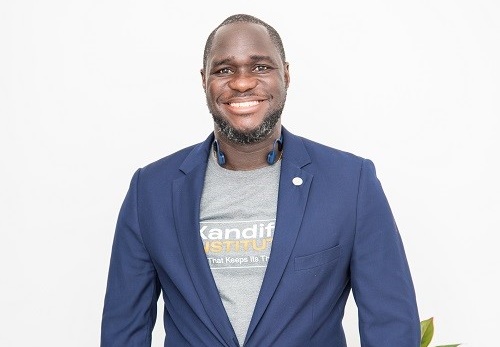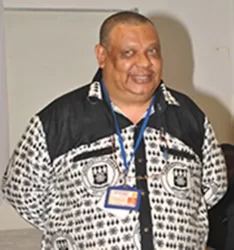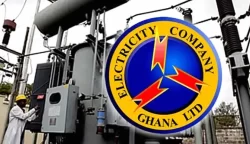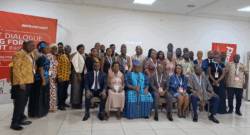Our planet, previously one large land mass (Pangaea), broke apart to separate us as people and expose us to different conditions, cultures, demographics. Man has been searching for a way back ever since, to reunite with his distant fellow man; the birth of the aeroplane by the Wright Brothers, the voyage of Christopher Columbus, the advent of automobiles by Karl Benz and his fellow industrialists, etc, give testament to this, but all of these fail in comparison to these words, “come here, Mr. Watson, I want to see you.”
These were the first words to be spoken over a technological phenomenon that was going to shake the world, not breaking it further apart but finally making it whole again. For man realized they need not reach for the sky or traverse the oceans or walk miles to make contact with another man but can achieve all that with a few clicks of a button. The world never looked back.
The President, Nana Addo Dankwa Akufo-Addo is championing this agenda for our nation. His foresight has brought to bear companies like GIPC, GRIDtel, and a newly improved Ministry of Communication. Also the passage of a Cybersecurity Act, Data Protection Commission, Security Operations Center, organization of IT/ICT trainings etc. have gone a long was to show unflinching commitment to making this happen.
President Akufo-Addo together with his Vice President Alhaji Dr. Mahamudu Bawumia has adequately propelled the nation and all its resources into a fundamentally pivotal position for the goal to be achieved.
The leadership of the National Communications Authority and the Ministry of Communication have bought into the President’s determination with their works thus far and one can easily tell that soon enough, Ghana would be an e-power to be reckoned with in sub-Sahara Africa. Our very continuity, our nation, our democracy, even our very livelihood depends on this. The world has moved from the information age to the digital age. And our adaptability will determine what happens next.
“The digital revolution is far more significant than the invention of writing or even printing.” ~ Douglas Engelbart
The 4th Republic of Ghana has seen the utilization of digital platforms and technologies to achieve strides in Health, Finance and Economics, Telecommunications, etc. However, over the last 8 years our digital fortitude as a nation has never been more astute. Ghana was able to achieve full internet connectivity in 1995, making it the first Sub-Sahara African country to achieve this. Since then our country has seen robust improvement in the telecom sector.
The upstarts of several internet service providers throughout the nation, the coming out of several multimillion dollar telecommunication Giants like Ghana Telecom (now Vodafone Ghana), Glo from Nigeria, MTN from South Africa, AirtelTigo (now controlled by the government) and the rapid spread optical fibre network throughout the country.
As well as the spread of 3G/4G connectivity, LAN and WAN connectivity and several technology upstarts in the country due to the favourable technology conditions. But it does not end there. The First Gentleman of the nation in his State of Nation Address (SONA) 2021 has assured Ghanaians that he will keep true to his promise of taking this, several steps further. He has promised to, within his last term of office, make the current Ghana Card ID synonymous with the TIN number.
This all comes after securing an MOU from the International Telecommunications Union (ITU) to train highly capable IT/Telecom professionals in the country to man several techno-initiatives he himself brought about; like the cybersecurity taskforce, the security operations centre. (In 2020, the Cyber Security Act was passed by parliament.
The Cyber Security Authority was established as a result of the act. The law seeks to protect the information infrastructure of the country, monitor and regulate cyber security activities, provide protection for children on the internet and develop Ghana’s cyber security ecosystem.
The government has implemented several initiatives to build the country’s cyber security; the revision of the National Cyber-Security Policy and Strategy, the National Cyber Security Centre, Safer Digital Ghana campaign among others) Etc. as well as the revitalization of the Data Protection Commission (established in 2012 as a result of the Data Protection Act 2012(ACT 843).
An Act to establish a Data Protection Commission to protect the privacy of the individuals and personal data by regulating the processing of personal information, to provide the process to obtain, hold, use or disclose personal information and for related matters. It is a statutory body to ensure and enforce compliance of the Act. The Data Protection Act lays down the rules pertaining to the collection, use and protection of data of individuals)
The Minister for Communication, Ursula Owusu-Ekuful in an address at an ITU event touched on several government e-policies that have been implemented, their significance and what the future holds for the digital age of Ghana. Implementations such as; Regional Commuinty Information Centres(CIC) have been established nationwide to bring governmental services including postal services, passport services, birth registrations etc. closer to the average Ghanaian.
Also under this administration, government launched the biometric National Identity Card, which is enhanced with new technologies including tactile elements for the blind, clip embedding technology and iris capabilities.
The national Digital Property Addressing System, powered by the locally developed Asaase GPS APP, which will provide every Ghanaian with a unique permanent digital address linked to postcodes has been a big boost to our GPS and real estate systems. One that cannot be overlooked.
Matter of fact, the introduction of paperless port operation, the integrated e-immigration system, e-procurement, e-parliament, e-justice, e-cabinet and smart workplaces among other initiatives, which are all at various stages of implementation and the development of an interoperability system to integrate government databases, all represent significant milestones in Ghana’s journey to digitization.
Ursula Owusu-Ekuful also asserted that efforts are underway to support the vibrant local start up ecosystem, as part of those effort, an ICT Incubator Hub called the Accra Digital Centre, which is also home to a state of the art, Grade A ‘plug and play’ commercial office space for ICT businesses and business process outsourcing.
There is also a plan for the development of ICT Parks to promote entrepreneurship, attract private investment and enhance ICT research and development. The aim of government is to encourage the transfer of knowledge and development of human resource capacity to meet the increasing digital demands of the country and boost youth employment. Ghana truly is about entering a digital age indeed.
The nation has poised itself for rapid progress on the digitalization agenda front. As stated by the Vice President Alhaji Dr Bawumia “… But with digitalization, we are introducing new and more efficient ways of doing things. We are changing the way things are done in the affected institutions for the benefit of ordinary Ghanaians. From the onset of his government, President Nana Addo Dankwa Akufo-Addo has concerned himself with building a new, efficient Ghana under the Ghana Beyond Aid Vision, which is firmly anchored in leveraging technology for accelerated development.”
This vision would make this country achieve feats in this digitization agenda such as; Digital and thorough access to service to service from Ghana Revenue Authority, courts, the police, passport office, National Health Insurance, DVLA and more, all as linkages to the digitized Ghana Card. Digitization of land registry, Digital Property Addressing to provide a digital address to every location in Ghana, Digital Drivers licenses and digital vehicle registration have also been introduced pending mass implementation.
Passport applications are now online, and passport duration has increased from 5 years to 10 years. Renewal of NHIS registration via mobile phone has been a phenomenal innovation with an average of 70,000 renewals every week. The introduction of Paperless Port System has reduced the time to clear goods at the port to less than 48 hours, and there are many more examples of what is being done.
The Vice President Alhaji Dr. Bawumia further iterated that “We believe that now is the time to take a critical look at our seminal ICT policy document, the ICT Accelerated Development Policy, identify gaps and recommend changes required to provide the right framework to harness Ghana’s digital economy and also nurture our local ICT industry.”
Suffice it to say our country’s viability in this digital age is in good hands. We are nearly ready to tap into a new resource. A technological one, hopefully the envy of Silicon Valley and the world in days to come. The stance that the nation has taken thanks to its leadership President Akufo-Addo and Vice President Alhaji Dr. Bawumia has given viability to their stations. It shows they are very much aware of the importance of such projects in this modern Ghana. Our economy very well depends on it.
However, failure to achieve these plans would see us fall back farther than before. That cannot be allowed to happen. As it is evident from these strides being made, that will not happen. By the next generation Ghana will be fully digitilised and Ghana will celebrate her centenary not as a third world developing country but as a first world developed country. Ghana is ready to join the rest of the world as we herald the new digital age.
Suggested policies
- Government should formulate a policy on Satellite Operations and Ownership to make government aware of every satellite installed.
- Government should implement policy on Optical Fibre Ownership and Operation to certify every fibre installers by GRIDtel, NCBC fibre authorities in order regulate the dangers associated with the installation.
- Government should develop an age restriction policy on all media transmission in regulate and censor what children are exposed to on our Ghana YouTube space, TV stations, Radio Stations and other media outlets.
- Government should formulate policy on internet radio operation to monitor and regulate information posted on the radio websites on the internet.
- Government should develop policies to provide affordable internet nationwide to enable citizens have easy access to digital services.










